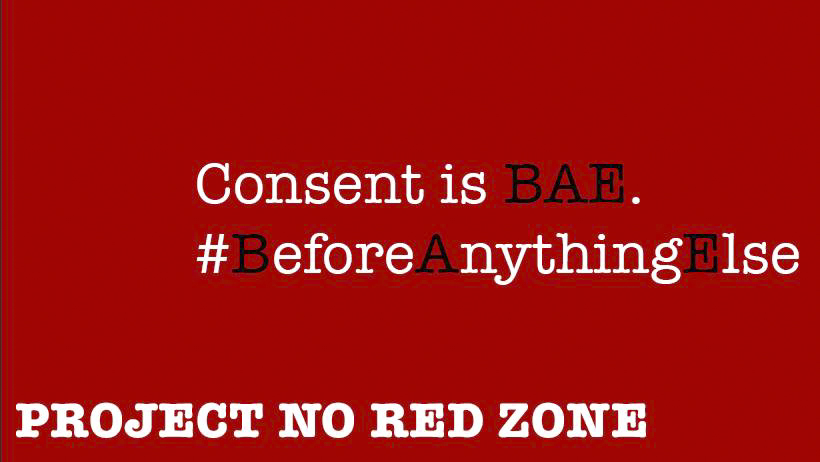
The recent relaunch of Project No Red Zone has sparked a new focus on ensuring that the efforts to prevent sexual assault reach the University’s athletic community.
Project No Red Zone member, Co-President of the Student Athlete Advisory Committee (SAAC), and men’s ice hockey team member Marty Rubin ’18 has been the main person to bring this to the attention of the athletic community.
“I’m most passionate about [Project No Red Zone] and the thing that I want to do most in the [SAAC] is to get more people involved,” Rubin said. “Specifically, I want more people involved in combatting those social issues on campus that, unfortunately, the athletic community perpetuates. I think a lot of it extends from a lack of vocabulary and ability to talk about these issues and address them.”
In an effort to promote Project No Red Zone, Rubin went to an all-coaches meeting and spoke about the benefits of encouraging captains and leaders of sports teams to attend bystander intervention training. At this meeting, Rubin also talked with coaches about the new No Red Zone initiatives.
The meeting resulted in Rubin speaking to a large group of new and returning winter and spring athletes at a mandatory NCAA paperwork meeting this past Tuesday, Sept. 19.
“We like to think of the ‘Red Zone’ as a metaphor for sexual violence on campus, and I urged all of the captains and leaders on teams to sit down with their team and have conversations about their individual team culture,” Rubin said. “We did it on the [ice] hockey team, we just sat down and said the stuff that we’ve been saying, the ways that we’ve been treating people and one another need to be changed for us to change our smaller culture—because it does interact with the larger culture of Wesleyan in general and the larger community.”
In addition to speaking directly to his fellow student athletes about Project No Red Zone’s mission, Rubin talked about the various related resources on campus such as Counseling and Psychological Services (CAPS), the Title IX Office, and the Office of Spiritual Life.
“I gave them updates about when resource trainings are,” Rubin said. “We’re tabling in Usdan all the time to spread awareness.”
Rubin reiterated this at the following SAAC meeting.
“I’ve gotten good feedback that lots of teams just sat down and talked about this situation,” Rubin said. “They are trying to get more open and honest conversations between another and hopefully get more people to these bystanders training. Hopefully, things will be looking up.”
Rubin’s ice hockey captains Jordan Jancze ’18 and Chad Malinowski ’19 talked about the impact of Project No Red Zone in conjunction with the culture of sports teams, specifically the hockey team.
“When it comes to holding yourselves and your friends accountable for their words and actions, the program allows teams to productively bring up issues [with] social conduct and offers everyone an opportunity to be a leader in the locker room and beyond,” Jancze wrote in an email to The Argus. “When it comes to our team culture, we’ve reinforced a rhetoric of being there for each other and identifying scenarios where we can be better teammates and better young men.”
Malinowski echoed these sentiments.
“Through Project No Red Zone, every athlete is aware of the issue and can be a part of the movement,” Malinowski wrote in an email to The Argus. “Additionally, the discussions place the onus on each athlete to hold both themselves and teammates to the standards set out. Overall, the awareness brought by Marty’s talk has been great in generating meaningful conversations in both formal and informal settings.”
Dana Mitchell ’18, Rubin’s co-president of SAAC and a leader on the women’s lacrosse team, emphasized the importance of bystander intervention training.
“All athletes this year are required to take Bystander Intervention, but I think it’s really important, especially for the freshman who maybe haven’t trained yet, to start the discussion about prevention and support,” Mitchell wrote in an email to The Argus. “The mental and physical health of our athletes is something SAAC and the entire athletic department is really focused on this, so diving right into the topic of Project No Red Zone has been great.”
Camille De Beus can be reached at cdebeus@wesleyan.edu and on Twitter @cdebeus.



Leave a Reply